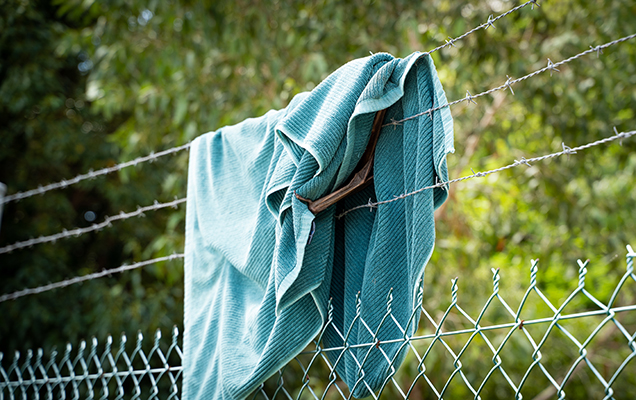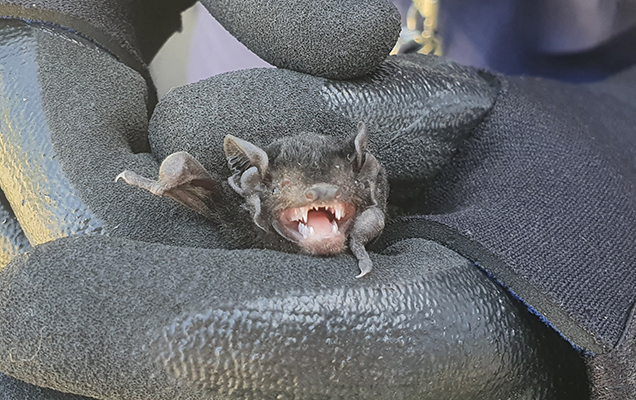In a recent RSPCA animal rescue, a lady staying at a caravan park noticed a bat stuck in barbed wire and immediately called us. She covered the bat with a towel so it wouldn’t die in the sun on the fence.
Bats will often injure themselves whilst trying to escape their trapped situation. The caller did the best thing for him by covering him with a towel, which spared him from the heat and prevented further injury. But it’s important to remember that you should never touch a bat! Appropriate protective equipment needs to be worn when handling living or deceased bats.
Animal Rescue Officer Chantelle arrived on the scene to try and free the bat from its predicament. She safely cut the wire on either side of the bat to free him and rushed him straight back to our Wildlife Hospital.
Due to the fragile nature of the trapped bat’s wings, unfortunately he had irreparable damage when veterinary checked which meant that for his welfare, he was sadly euthanised.
If you can avoid using barbed wire on your property and opt for single line fencing, this is a better option for our wildlife.
TIP: Unsure what fruit netting is best to protect your trees and our wildlife? Read more on wildlife friendly fruit tree netting here.





